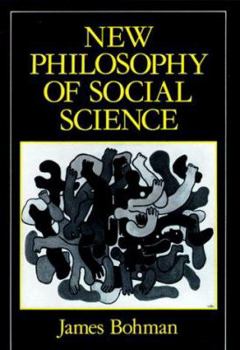New Philosophy of Social Science: Problems of Indeterminacy
Select Format
Select Condition 
Book Overview
Under the influence of postempiricism, the philosophy of science has changedenormously in recent years. New Philosophy of Social Science provides a clear and useful overview ofthe new synthesis that has taken place. Bohman argues for a theoretical and methodological pluralismgrounded in an account of the nature of the objects of social theory, which are necessarilyindeterminate and open ended: the new, postempiricist philosophy of social science "must find rigorwithin indeterminacy. "Bohman's position, that you can start from actual practices in the socialsciences, accept the fact that they will always contain indeterminacy and ambiguity, and yet be ableto construct viable norms, is buttressed by a number of case studies. These include examples drawnfrom rational choice theory, ethnomethodology, and the theory of communicative action. In theprocess, Bohman describes the status of such issues as causality, rules, interpretation, holism, andsocial criticism. The argument is not tied to a specific theoretical point of view, although ittakes the program of the Frankfurt School as an indication of the path toward a proper philosophy ofthe social sciences.James Bohman is Associate Professor in the Department of Philosophy at St. LouisUniversity.
Format:Paperback
Language:English
ISBN:0262521830
ISBN13:9780262521833
Release Date:January 1993
Publisher:MIT Press (MA)
Length:280 Pages
Weight:1.05 lbs.
Dimensions:0.7" x 6.0" x 8.9"
Customer Reviews
0 rating





